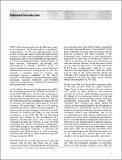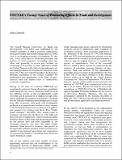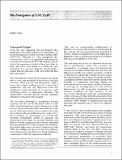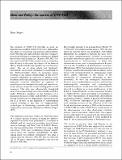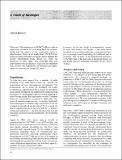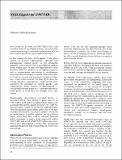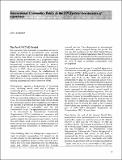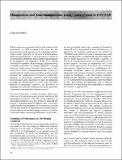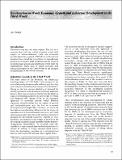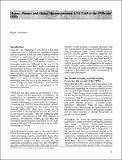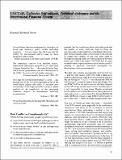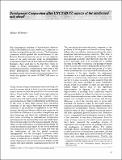Volume 15, Issue 3: UNCTAD: The First Twenty Years
Browse by
Recent Submissions
-
Editorial Introduction
(Institute of Development Studies, 01/07/1984) -
UNCTAD's Twenty Years of Pioneering Efforts in Trade and Development
(Institute of Development Studies, 01/07/1984)SUMMARY UNCTAD is the principal instrument of the General Assembly of the United Nations for deliberation and negotiation in the field of international trade and related issues of international economic cooperation. ... -
The Emergence of UNCTAD
(Institute of Development Studies, 01/07/1984)SUMMARY At the level of international diplomacy the most important factor in the convening of UNCTAD I in 1964 was the progressively deteriorating situation of developing countries in world trade in the course of the 1950s ... -
Ideas and Policy: the sources of UNCTAD
(Institute of Development Studies, 01/07/1984)SUMMARY The Singer?Prebisch thesis that there is an inherent bias in international trade against the interests of developing countries was the intellectual mainspring for the foundation of UNCTAD. The setting up of an ... -
A Clash of Ideologies
(Institute of Development Studies, 01/07/1984)SUMMARY UNCTAD has some real achievements to its credit in two interrelated fields. It has initiated new ideas, new concepts and new approaches to the problems of trade and development and it has negotiated international ... -
NGO Support for UNCTAD
(Institute of Development Studies, 01/07/1984)SUMMARY Among their other activities, NGOs lobby the negotiating governments of member states of UNCTAD. They have on occasion been able to bring the parties closer together, not least by promoting an exchange of information ... -
International Commodity Policy in the UN System: two decades of experience
(Institute of Development Studies, 01/07/1984)SUMMARY The slow progress in the implementation of UNCTAD's Integrated Programme for Commodities (IPC) since its establishment in 1976 has given rise to doubts about the merits of international commodity policy, especially ... -
Manufactures and Semi?manufactures: twenty years of work in UNCTAD
(Institute of Development Studies, 01/07/1984)SUMMARY UNCTAD has sponsored a number of important agreements and conventions designed to promote the developing countries' prospects for exporting manufactures. The history of the negotiations which have brought these ... -
UNCTAD and Commodities: towards a new agenda for research and action
(Institute of Development Studies, 01/07/1984)SUMMARY Very few commodity agreements have been reached under UNCTAD's auspices and the IPC has fallen far short of expectations. Greater success in future depends on understanding the interests, groups and political ... -
Deceleration in World Economic Growth and Industrial Development in the Third World
(Institute of Development Studies, 01/07/1984)SUMMARY UNCTAD's work in the area of manufactures has been guided by the idea that manufacturing is the engine of autonomous growth and development. Until recently industrialisation proceeded apace in the Third World. But ... -
Money, Finance and Global Macroeconomics: UNCTAD in the 1970s and 1980s
(Institute of Development Studies, 01/07/1984)SUMMARY It has always been understood that UNCTAD has to give attention to questions of money and finance as well as trade; it has initiated important proposals in this field despite its lack of operational powers. The ... -
UNCTAD, Collective Self?reliance, Technical Assistance and the International Financial System
(Institute of Development Studies, 01/07/1984)SUMMARY UNCTAD has sought to fulfil four roles in respect of monetary and financial issues: as forum for dialogue and negotiation, honest broker, promoter of concepts and approaches, and source of technical assistance. ... -
Technology in UNCTAD; 1970 to 1984
(Institute of Development Studies, 01/07/1984)SUMMARY Since 1970, when UNCTAD's technology programme got off the ground, there has been an enormous change in developing countries' attitude to technology policy. The transfer of technology and development of technological ... -
Development Cooperation after UNCTAD VI: aspects of the intellectual task ahead
(Institute of Development Studies, 01/07/1984)SUMMARY The international community's failure at UNCTAD VI in 1983 to agree on a programme to promote world recovery carries some lessons for the future. While the interdependence of northern and southern economies is ... -
Domestic Policy and International Structural Reform
(Institute of Development Studies, 01/07/1984)SUMMARY The domestic economic policies of developing as well as developed countries are part of the environment shaping international economic structures. Selective changes in these policies could bring about a modest ...

